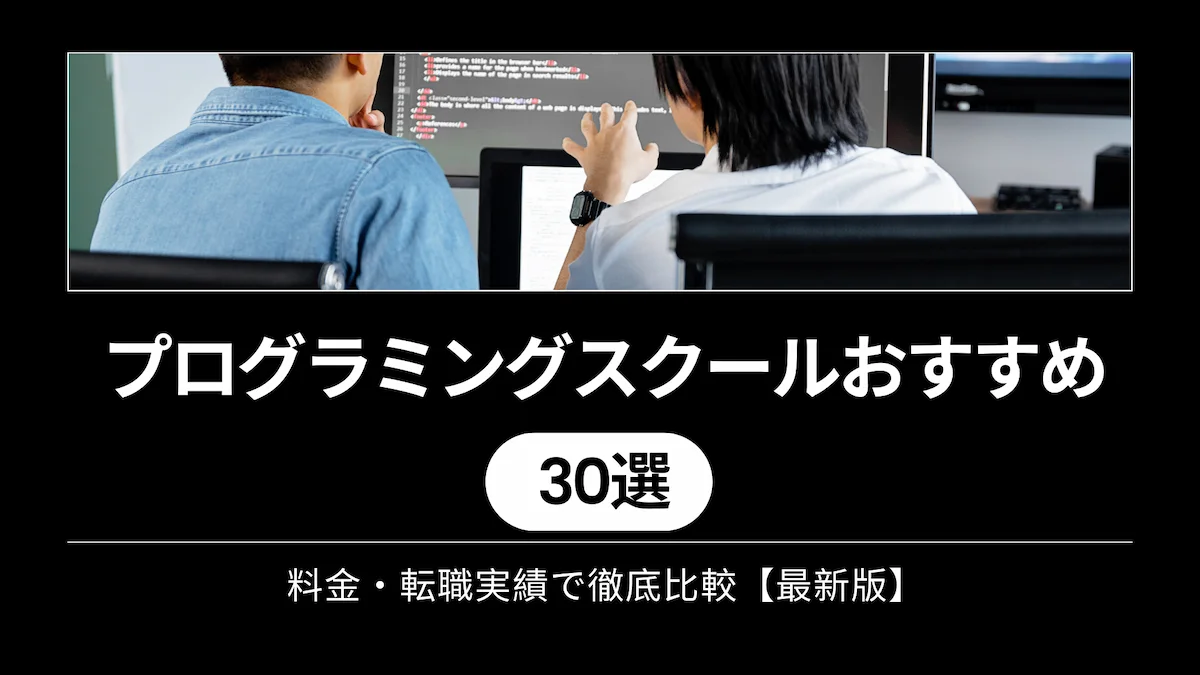Japan’s IT industry faces various challenges, including delays in digitalization and talent shortages. However, it is also entering a major turning point with government-led digital transformation initiatives and the emergence of new technologies.
This article explains the current state and challenges of Japan’s IT industry, as well as its future prospects, based on the latest data and real-world conditions.
- The current challenges and opportunities in Japan’s IT market
- How Japanese IT companies compete globally
- Career paths and salaries in Japan’s tech sector
1. Current Analysis of Japan’s IT Industry

Japan’s IT industry is at a major turning point, driven by the acceleration of digital transformation (DX).
While demand for cloud and AI technologies is rapidly increasing, growth in traditional system development has slowed. Here, we’ll provide a multifaceted explanation of the current state of Japan’s IT industry based on the latest market data and analysis.
Domestic IT Market Size and Growth
Japan’s IT market continues to grow steadily, with IDC predicting a market size of 27.865 trillion yen by 2028.
The promotion of digital transformation (DX) has led to rapid expansion in demand for cloud services and AI-related technologies. The market growth is primarily driven by cloud services, AI solutions, and security-related markets.
Meanwhile, traditional system development and hardware markets are experiencing modest growth, indicating a major structural shift in the market.
Japan’s Position in the Global Market
According to the IMD World Digital Competitiveness Ranking published by the International Institute for Management Development (IMD), Japan ranks 31st (2024).
While the domestic IT market continues to grow, Japan’s global position remains relatively low.
Japan’s IT industry faces unique challenges in the international context. While it maintains strong technical capabilities in hardware manufacturing, it faces challenges in software development competitiveness.
Additionally, there are limited numbers of large IT companies with global operations, with many companies adopting business models focused on the domestic market.
Japan’s relative position is particularly shifting due to the rise of IT industries in emerging nations.
Challenges and Opportunities in Digitalization
Japan’s digitalization lags behind other advanced nations, making its improvement an urgent priority.
Currently, the industry faces challenges such as legacy systems and delayed updates, shortage of digital talent (approximately 300,000 IT professionals needed), and companies’ cautious approach to DX investment.
However, these circumstances also present significant growth opportunities.
Government-led digital transformation initiatives (establishment of the Digital Agency), potential for productivity improvements through new technology adoption, and accelerated IT investment due to remote work adoption are expanding development possibilities.
2. Distinctive Strengths and Challenges in Japan’s IT Industry

Japan’s IT industry receives high praise for its high-quality product development and meticulous quality control.
However, challenges exist in global expansion and talent development. Let’s analyze Japan’s IT industry’s strengths and challenges in detail and explore the underlying factors.
Technical Capability and Quality Control Advantages
Japan’s IT industry receives global recognition for its high-quality system development and meticulous quality control.
It has particularly strong track records in stability and reliability, especially in financial systems and core systems for manufacturing industries.
Major strengths of Japan’s IT industry
- Thorough quality assurance processes
- Extremely low error rates
- High operational stability
Their excellence in embedded systems, integration of hardware and software, and attention to detail in design philosophy receive particular international recognition.
Quality control methods developed through collaboration with the manufacturing sector are especially highly regarded globally.
Barriers to Global Expansion
However, multiple challenges exist in global market expansion, affecting the international competitiveness of Japanese IT companies.
The most significant barrier is language and communication issues. Insufficient business English skills and difficulties in building global development systems hinder international expansion.
There are also challenges in business models. The Japanese companies’ customization-focused development approach limits scalability in global expansion and leads to insufficient cost competitiveness.
Despite many companies recognizing the need for overseas expansion due to domestic market maturity, they struggle to take concrete action.
Current State of Talent Development and Recruitment
Developing and securing IT talent is one of the most critical challenges facing Japan’s IT industry.
As of 2024, the IT talent supply-demand gap has reached approximately 300,000 people, with particularly serious shortages in advanced specialist talent and delays in young engineer development.
Talent development challenges and response strategies
- Limitations of OJT-centered development methods
→ Strengthening practical IT education through industry-academia collaboration - Delays in adapting to new technologies
→ Enhancement of reskilling and relearning programs - Insufficient global talent development
→ Active recruitment and utilization of foreign IT talent
Implementing effective solutions to these challenges will be a crucial factor in determining the future competitiveness of Japan’s IT industry.
■日本でエンジニアとしてキャリアアップしたい方へ
海外エンジニア転職支援サービス『 Bloomtech Career 』にご相談ください。「英語OK」「ビザサポートあり」「高年収企業」など、外国人エンジニア向けの求人を多数掲載。専任のキャリアアドバイザーが、あなたのスキル・希望に合った最適な日本企業をご紹介します。
▼簡単・無料!30秒で登録完了!まずはお気軽にご連絡ください!
Bloomtech Careerに無料相談してみる
3. The Real State of Working in the IT Industry

The working environment for people in the IT industry is changing significantly due to technological innovation and changes in work styles.
Here, we’ll introduce the industry’s current state from a practitioner’s perspective, including salary levels, work styles, and career development opportunities, along with concrete data.
Average Salaries and Compensation Systems by Position
Salary levels in the IT industry vary significantly based on position, years of experience, and skill sets.
Major positions and average annual salaries
- System Engineer: 6.849 million yen
- Web Engineer: 5.576 million yen
- Data Scientist: 5.543 million yen
- Security Engineer: 5.583 million yen
- Data Engineer: 5.583 million yen
- Security Expert: 5.583 million yen
- Software Developer: 5.576 million yen
- Project Manager: 6.849 million yen
Notably, demand for specialists in cutting-edge technology fields such as AI/machine learning engineers and cloud architects has been increasing, with experienced professionals increasingly earning over 10 million yen.
Work Style Characteristics and Work Environment
The IT industry’s work environment has changed significantly in recent years, particularly since the COVID-19 pandemic, with rapid diversification of work styles.
Approximately 50% of companies have implemented remote work, and the adoption of flextime systems and acceptance of side jobs/concurrent positions is expanding.
Regarding working hours, data shows an average of 14.7 overtime hours per month.
Major work environment challenges include overtime due to project management difficulties, learning burden to keep up with technological innovation, and complications in team communication.
Career Development Trends and Possibilities
Career development in the IT industry is diversifying along with technological evolution. In addition to traditional vertical career paths, horizontal expansion of expertise has become important.
Technical specialist path
More people are choosing to pursue deep expertise as specialists, building careers in cutting-edge technology areas or becoming freelancers/specialized consultants.
Management path
Established paths to project manager, technical department manager, CTO, or other executive positions. Recent trends include multiple technical specializations (full-stack development), emphasis on global certifications, and increased options for entrepreneurship/independence.
Notable points
Continuous learning and capability development are essential to keep up with rapid technological evolution. Many companies are strengthening support for qualification acquisition and technical training, with self-development opportunities becoming more abundant than before.
4. Future Prospects and Opportunities for Japan’s IT Industry

As technological innovation and the transition to a digital society accelerate, new growth opportunities are emerging for Japan’s IT industry.
Various possibilities are expanding against the backdrop of government digital transformation promotion policies and increased corporate DX investment. Here, we’ll explain future prospects and specific growth opportunities.
Technology Fields Expected to Grow
Several technology fields are expected to show particular growth in Japan’s IT industry over the next 5-10 years.
AI/Machine Learning Field
Industrial AI applications, natural language processing, and computer vision are attracting attention.
Cloud Computing Field
Development is expected in hybrid cloud, multi-cloud, and edge computing.
Cybersecurity Field
New technology areas are expanding, including zero-trust security, AI-powered security, and IoT security.
Development leveraging Japan’s strengths is particularly expected in industrial AI fields with high manufacturing industry affinity and technology fields related to social infrastructure digitalization.
Government Digital Transformation Promotion Measures
The government has formulated the “Priority Plan for Realizing a Digital Society” and is implementing various support measures.
Comprehensive initiatives are being implemented, including the enforcement of the Basic Act on the Formation of a Digital Society, cross-sectional digital transformation promotion by the Digital Agency, demand creation through administrative digitalization, and DX support subsidies for small and medium-sized enterprises.
Specific goals include 100% digitalization of administrative procedures, acceleration of nationwide 5G network development, and development of digital talent (450,000 people annually), and these measures serve as important driving forces supporting IT industry growth.
Reference: Digital Agency Priority Plan for Realizing a Digital Society
Initiatives to Strengthen Global Competitiveness
Various initiatives are being advanced to enhance the global competitiveness of Japan’s IT industry.
Technical Development Initiatives
- Quantum computing research
- 6G communication technology development
- Green technology promotion
International Expansion
- Accelerated expansion in Asian markets
- Enhanced participation in international standardization
- Promotion of cross-border collaboration
Human Resource Development
- Strengthening global talent development
- Active recruitment of foreign talent
- Promotion of industry-academia collaboration
Through these initiatives, Japan’s IT industry aims to develop by leveraging its unique strengths within the global competitive environment.
Particular emphasis is placed on differentiation strategies that leverage Japan’s unique strengths, such as high quality control capabilities and close collaboration with the manufacturing industry.
■日本でエンジニアとしてキャリアアップしたい方へ
海外エンジニア転職支援サービス『 Bloomtech Career 』にご相談ください。「英語OK」「ビザサポートあり」「高年収企業」など、外国人エンジニア向けの求人を多数掲載。専任のキャリアアドバイザーが、あなたのスキル・希望に合った最適な日本企業をご紹介します。
▼簡単・無料!30秒で登録完了!まずはお気軽にご連絡ください!
Bloomtech Careerに無料相談してみる
5. Actions for Building a Career in Japan’s IT Industry

Strategic career building with an eye on market needs is essential for success in the rapidly changing IT industry.
Here, we’ll provide practical advice on currently in-demand skills and certifications, effective learning methods, and career path selection.
In-Demand Skills and Certifications
As of 2024, demand for specific technical skills in the IT industry is increasing.
Cloud Technology
Practical experience with AWS, Azure, GCP, cloud architecture design, and container technologies (Docker, Kubernetes) is highly valued.
Programming Languages
Python for AI/ML development, JavaScript/TypeScript for frontend development, and Go for backend/infrastructure development are particularly noteworthy.
Certifications effective for career advancement
- Cloud-related certifications (e.g., AWS Certified Solutions Architect)
- Network-related certifications (e.g., CCNA/CCNP)
- Project management certifications (e.g., PMP)
- Security-related certifications (e.g., Information Security Management)
How to Choose an Effective Career Path
Clear goal setting and planned skill acquisition are important for career building in the IT industry. A strategic approach that accurately assesses personal aptitude and market needs is key to success.
Market Trend Analysis
Identifying growth fields, analyzing demand forecasts, and evaluating technology future potential are essential. Simultaneously, it’s important to clearly define personal aptitude analysis, including identifying strengths, interest directions, and long-term career vision.
Skill Acquisition Planning
Creating staged learning roadmaps, considering how to gain practical experience, and utilizing side jobs/concurrent positions are recommended concrete action plans.
Practical Learning Resources and Communities
Quality learning resources and community participation are effective for IT skill acquisition.
Online learning platforms such as Udemy, Coursera, Dotinstall, and TECH PLAY are widely used. Technical books, Qiita, Zenn, and various technical blogs are also important learning resources.
For community activities, participation in technical study groups (Meetups), hackathons, and open-source projects is recommended. Through these activities, you can gain practical technical experience while expanding your industry network.
For Effective Learning
Start with systematic basic knowledge acquisition, gain practical project experience, and progressively approach knowledge sharing in communities and mentor advice utilization.
Particularly important is not just technical acquisition but gaining practical project experience.
Developing Practical Skills
- Participation in open-source projects
- Execution of personal projects
Effective for Building Industry Networks
- Active participation in technical communities
- Keeping up with latest technology trends
Building a Sustainable Career: Continuous learning and skill improvement are essential in today’s IT industry with rapid technological evolution.
By effectively combining online resources and real community activities, you can build more practical and market-valuable skills.
Furthermore, utilizing mentorship and peer review opportunities enables more efficient growth. A comprehensive approach can help realize sustainable career building.
6. Japan’s IT Industry Continues to Develop by Leveraging Its Strengths
Japan’s IT industry continues to advance its response to globalization and digital innovation while leveraging its high technical capabilities and quality control abilities.
New growth opportunities are also emerging through government digital transformation promotion and development in new technology fields.
While IT professionals are required to improve their skills through continuous learning and practice, this also presents an opportunity to build more attractive careers.



















